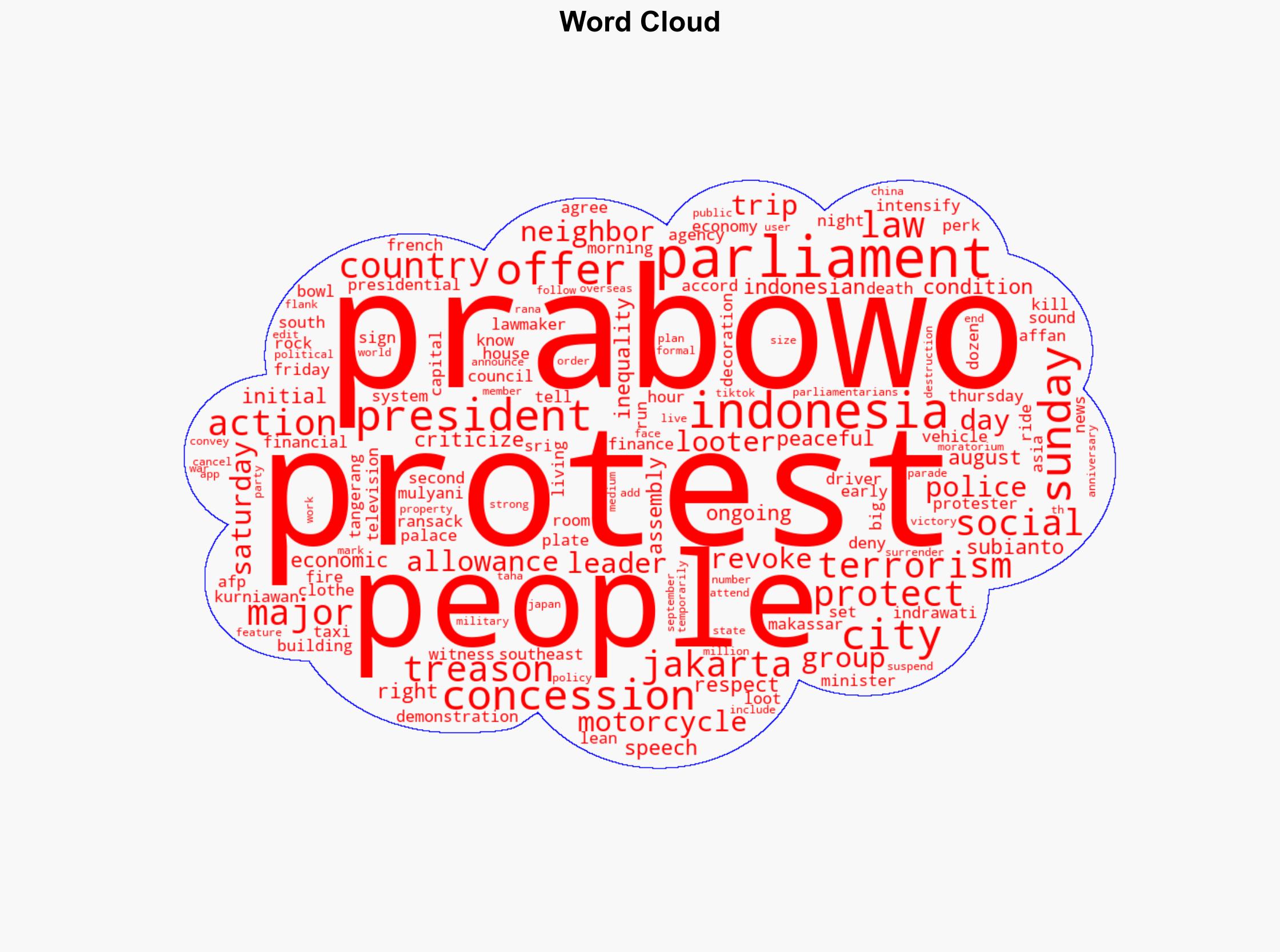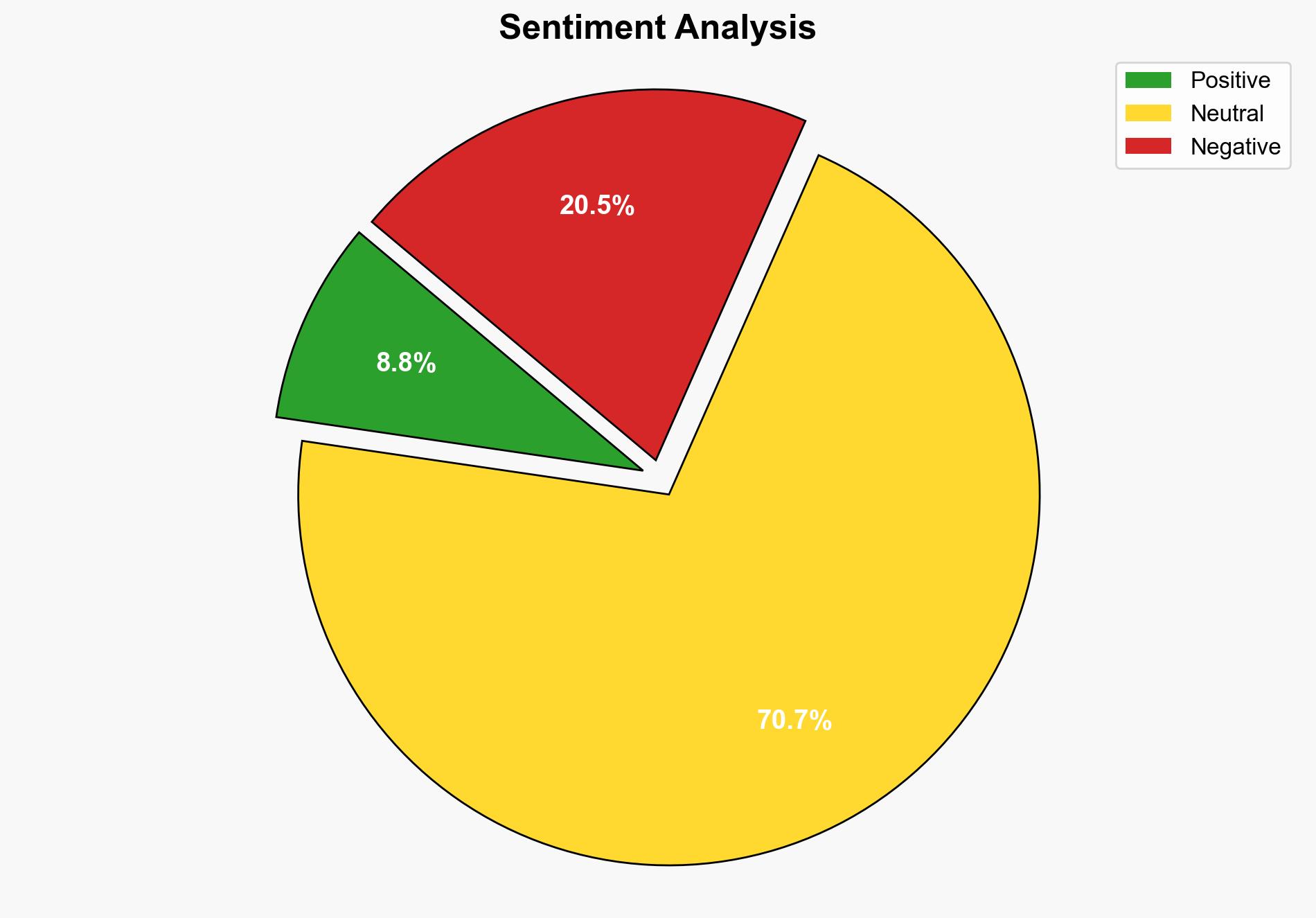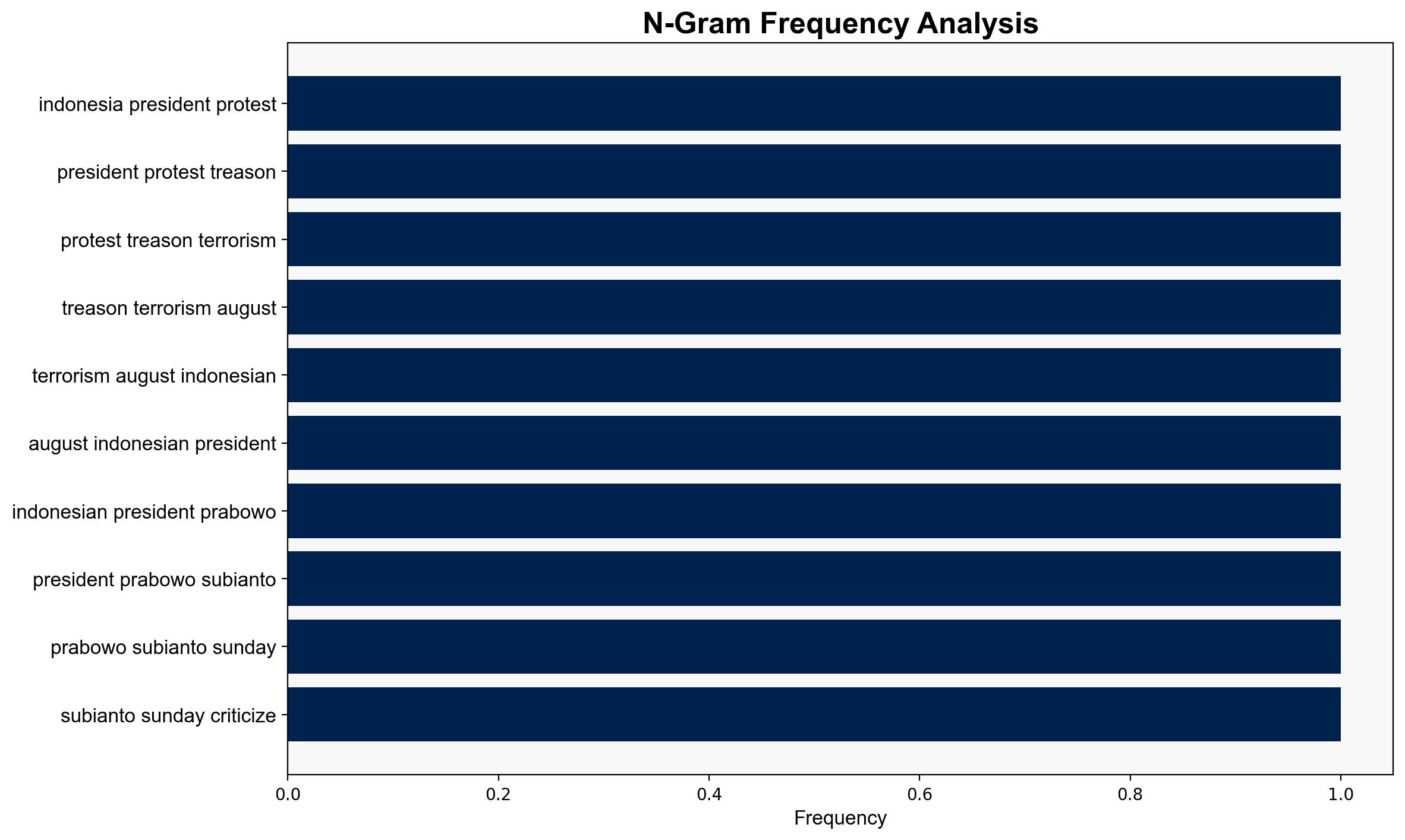Indonesia President calls protests ‘treason and terrorism’ – DW (English)
Published on: 2025-08-31
Intelligence Report: Indonesia President calls protests ‘treason and terrorism’ – DW (English)
1. BLUF (Bottom Line Up Front)
The protests in Indonesia, labeled as ‘treason and terrorism’ by the President, signify a critical juncture in the nation’s socio-political landscape. The most supported hypothesis is that the protests are primarily driven by genuine socio-economic grievances, exacerbated by governmental policies perceived as unjust. Confidence level: Moderate. Recommended action: Engage in diplomatic dialogue to address underlying issues and prevent further escalation.
2. Competing Hypotheses
1. **Hypothesis A**: The protests are a result of genuine socio-economic grievances, with citizens expressing discontent over inequality and economic conditions. The government’s labeling of these protests as ‘treason and terrorism’ is an attempt to delegitimize and suppress dissent.
2. **Hypothesis B**: The protests are orchestrated by political opponents or external actors aiming to destabilize the government. The President’s response is a strategic move to maintain national security and prevent potential coups or foreign interference.
Using ACH 2.0, Hypothesis A is better supported by the evidence of widespread socio-economic discontent and the government’s concessions, which indicate recognition of legitimate grievances.
3. Key Assumptions and Red Flags
– **Assumptions**:
– Hypothesis A assumes that the majority of protesters are motivated by socio-economic issues rather than political manipulation.
– Hypothesis B assumes significant external or political influence behind the protests.
– **Red Flags**:
– Lack of concrete evidence supporting external manipulation.
– Over-reliance on government narratives without independent verification.
– **Blind Spots**:
– Potential underestimation of the role of social media in mobilizing protests.
– Insufficient exploration of the impact of economic policies on public sentiment.
4. Implications and Strategic Risks
The protests could lead to increased instability if not addressed through constructive dialogue. Economic repercussions may arise from prolonged unrest, affecting investor confidence. The labeling of protests as ‘terrorism’ risks alienating the population and escalating tensions. Cybersecurity threats may increase as social media platforms are used for mobilization and misinformation.
5. Recommendations and Outlook
- Facilitate open dialogue between government and protest leaders to address grievances.
- Monitor social media for signs of escalation or misinformation campaigns.
- Scenario Projections:
- Best: Peaceful resolution through dialogue, leading to policy reforms.
- Worst: Escalation into widespread violence, necessitating military intervention.
- Most Likely: Continued protests with intermittent violence, leading to gradual policy adjustments.
6. Key Individuals and Entities
– Prabowo Subianto
– Affan Kurniawan
– Sri Mulyani Indrawati
7. Thematic Tags
national security threats, cybersecurity, counter-terrorism, regional focus





